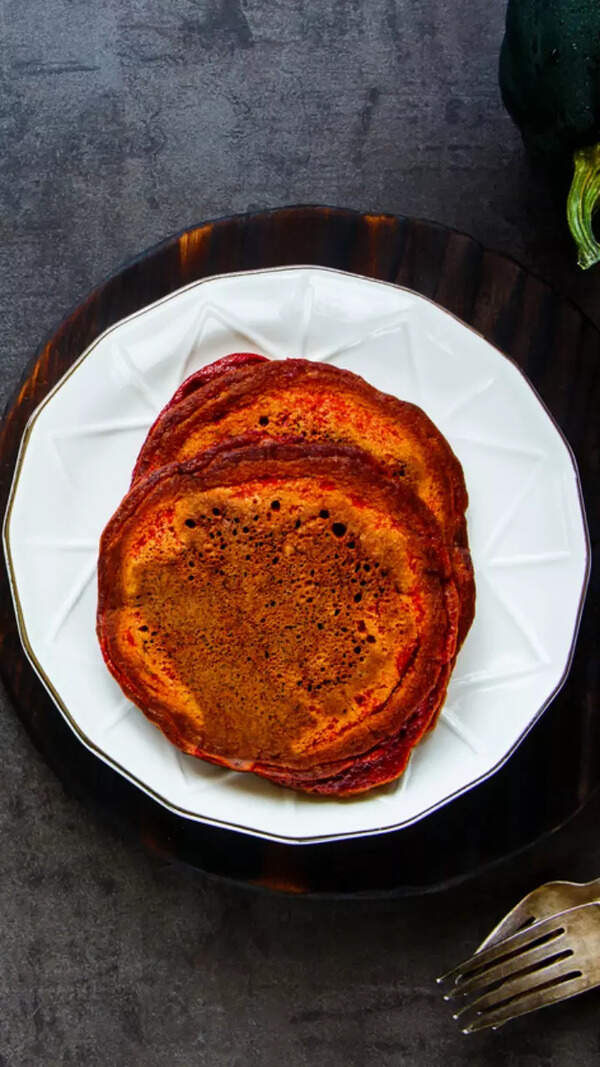- News
- lifestyle
- health-fitness
- health-news
- Colorectal cancer risk increasing among young Americans: Early symptoms one should know
Colorectal cancer risk increasing among young Americans: Early symptoms one should know

Colorectal cancer (CRC) is no longer confined to older adults
Colorectal cancer is increasingly affecting younger individuals, including those in their 20s and 30s. Recent studies have shown a significant rise in early-onset colorectal cancer (EOCC) cases among people under 50. Between 2010 and 2019, early-onset cancers, particularly colorectal, increased by 80% in this age group. Identifying its early symptoms is very crucial to prevent the disease from spreading.

Blood in stool
If you spot blood in the toilet bowl, on your poop, or even just a smear on the toilet paper, don’t brush it off. Sure, it might be hemorrhoids, but if it's happening regularly, it could be something more serious like colorectal cancer. The bleeding often comes from polyps or tumors inside your colon or rectum. Sometimes it's bright red, sometimes it’s darker (like coffee grounds), but either way, it’s your body waving a red flag—literally. Don’t panic, but don’t ignore it either. Call your doc and get it checked out, just to be safe.

Changes in bathroom habit
If your bathroom schedule suddenly starts acting weird—like you’re pooping way more than usual, or not at all for days—it’s time to pay attention. Chronic constipation, diarrhea, or feeling like you still have to go even after you've gone are classic warning signs. These changes might mean something is blocking your colon or messing with its rhythm. Don’t assume it’s just your diet or stress. If things don’t go back to normal after a few days or weeks, it’s time to talk to a healthcare provider. Your gut has a voice. Listen to it.

Upset stomach
We all get the occasional stomachache, but if you're constantly dealing with cramping, bloating, gas, or discomfort in your belly—and there's no obvious cause—it could be something more than just bad takeout. Tumors in the colon can block things up or irritate the digestive tract, causing pain and discomfort. Some people even describe it as a sharp pain that comes and goes. So, if your stomach’s throwing tantrums more than usual and antacids aren’t helping, it’s worth getting checked out. Your gut isn’t just upset—it might be trying to warn you.

Unexplained weight loss
Dropping pounds without even trying might sound like a dream, but in reality, it can be a major red flag. If your clothes are suddenly loose and you haven’t changed your diet or exercise habits, it might be because your body is fighting off something serious—like cancer. Tumors can speed up your metabolism or affect how your body absorbs nutrients. You might also lose your appetite or feel full super fast. So if you're shedding weight without a solid reason, don't just enjoy the smaller jeans. Make an appointment and figure out what’s going on.

Constant fatigue
Feeling tired after a long day is normal—but if you're constantly drained, even after a full night’s sleep, it might be something more. Colorectal cancer can cause slow internal bleeding, which leads to anemia (low iron). And low iron makes you feel like you’re running on fumes all day long. You might notice you get winded walking up stairs or can't focus like you used to. If caffeine isn’t cutting it and rest doesn’t help, your body could be working overtime behind the scenes. Time to get some bloodwork done and see what’s up.

Risk factors
High consumption of processed meats, low fiber intake, and sedentary lifestyles are linked to increased colorectal cancer risk. Being overweight is a known risk factor for various cancers, including colorectal cancer. Smoking and drinking alcohol are also linked to cancer risk.








